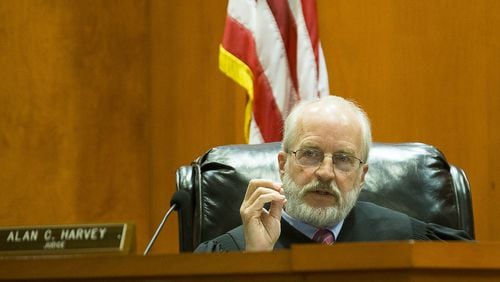In DeKalb County court Tuesday, an attorney for the state Department of Revenue argued that Fulton County residents — who already paid their 2017 property taxes — need to be billed a second time.
Last year, Fulton leaders took illegal actions when they froze most residential property values at 2016 levels, attorney Alex Sponseller said. The only way to ensure that other counties don't also follow suit when residents complain about spikes in values, he said, is to bill residents for the difference between the first assessment, in May, and the second, in August.
Not to do so would mean the state’s taxing system would become “totally warped,” he said, “based on who has the angriest political voice.”
“If this was allowed to occur routinely, tax assessments would be all over the place,” Sponseller said.
VIDEO: More on Fulton County
But DeKalb County Magistrate Judge Alan C. Harvey questioned the department's logic, saying the county, Fulton's 15 cities and the boards of education and community improvement districts already had the revenue they needed. Would they immediately turn around and give a refund for the additional money collected, he asked?
“The state’s arguing no, you need to bill people more than what the local government wants,” Harvey said. “Obviously, it’s very complicated.”
And Fulton County attorneys pushed back against Sponseller’s assessment that the decision to resend property valuations was a political decision at all. Two county commissioners testified that they had not had confidence in the assessments, citing a number of discrepancies in individual assessments. They also cited issues with the chief appraiser that led to his firing in 2016 and the county’s decision to ask the state Department of Revenue to perform a performance review.
“We had a crisis of confidence,” said Bob Ellis, vice chairman of the Fulton County commission.
Ellis defended the county’s decision to use a law from the 1880s to push for the county government to take action, saying not to do so would have been “a fraud on the public.” He and County Commissioner Lee Morris said they had concerns about the property assessment process well before residents began calling and emailing with their own complaints.
According to Tuesday’s testimony, a number of state and county officials had pushed back against Fulton’s plan to alter and resend values. But commissioners were convinced that they had the ability to take action, something the state has disputed.
Kaye Burwell, a Fulton County attorney, argued that while the state had the authority to police uniformity statewide, it was “pretty clear” that the county had the authority to make decisions that would affect its own taxpayers. Fulton County has already billed for 2018, in addition to 2017. Homeowners already sent their money in.
“They’re seeking to undo a past act,” she said. “They have no legal right to undo what’s already been done.”
Judge Harvey, in the past, has twice allowed Fulton to bill taxpayers under temporary collection orders. Sponseller underscored the fact they they were temporary, and said that left an opportunity for more money to come in. After all, the state has yet to approve Fulton's tax digest for the past two years, he said. It's not undoing an action, he said, if there's permanent action yet to be taken.
Harvey asked for proposed orders before the end of the month, and said he expects to rule on the issue soon.
“This has been very helpful,” he said.








